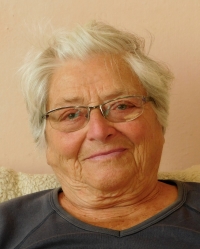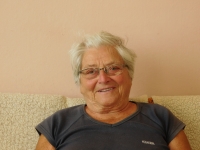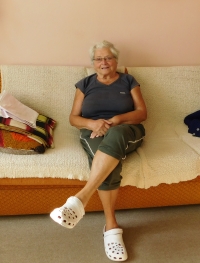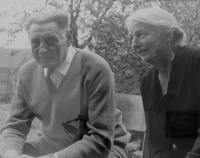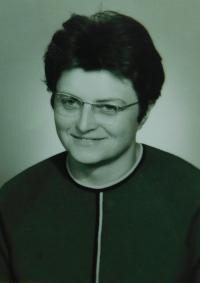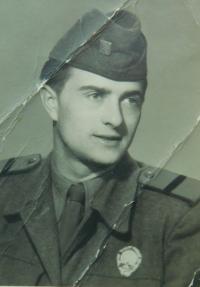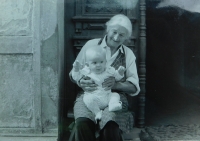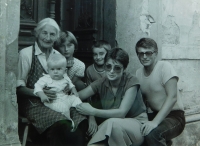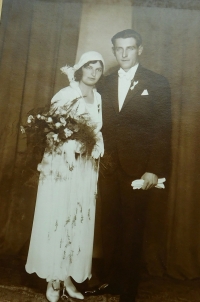Lost home

Stáhnout obrázek
Eva Laryšová, née Dobrovolná, was born on the 30th of January in 1933 in Žďár nad Sázavou as the eldest of three children of Jaromír and Růžena. The family owned a farm with 25 hectares of fields. During the collectivisation, they refused to join the Unified Agricultural Cooperative. The local administration set impossibly high production quota for them and when the family was not able to meet them, their machinery and cattle was confiscated. In 1953, the father was sentenced in a show trial for three years of imprisonment, all his property was confiscated and his wife and three children, now left penniles, were banished to Dolní Hedeč, a community more than a hundred kilometres away. Several months later, Eva married Antonín Laryš, whose family shared a similar fate. They also refused to join the Unified Agricultural Cooperative so the father of the family, Vojtěch Laryš, was imprisoned, his two sons were sent to serve in the army with the Auxiliary Technical Batallions and the family was banished from their home in Holešovice in the Opava area. The family used their smallholding to grow potatoes, they had decent yields but the authorities accused them of stealing them from the state farm. The court sentenced Eva’s father to two years and her husband to about year and half of imprisonment based on the claims of the local dignitaries. After Eva’s husband and father were released from prison, they got baack to their jobs at the state farm where they would meet those people who bore false testimony against them. On the New Year’s Eve of 1960, Eva’s husband died in a motorcycle accident. Eva and her then moved to Králíky and from 1964 until she retired, she worked in the local Tesla factory. The family property was not returned even after the fall of Communism. Their spacious house on the main square of Žďár nad Sázavou was torn down in 1968 and on their fields, a new neighbourhood was built between 1950 and 1960; it bore the ominous name Stalingrad.
